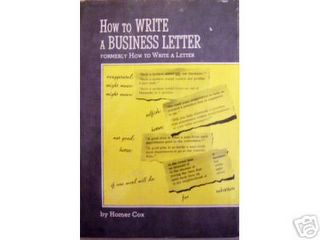
The book is very dated--it assumes the reader is a businessman, who has a "Girl Friday"("The language of secretaries is not always perfect..." writes Cox. "Sometimes secretaries are sensitive about this shortcoming." Cox does, however, state that "The modern secretary is well informed" and suggests "You can appeal to the urge that sends her out on her lunch hour to buy something new--perhaps a hat." I think "The Language of Secretaries" would be a good title for a poem or story, don't you? And the Girl Friday in the story would have to kick some serious butt.)
There is some interesting writing advice throughout the book. Here are a few tidbits:
"A man who has been using gloom words for years may not know the effect they have been creating on his reader."
"Sentences are shrinking. In this they are like distances. When Jules Verne wrote about going around the world in 80 days, sentences of 80 words were common. Today the globe can be circled in less than a week."
"Like narcotics, long sentences are valuable when used for medicinal purposes."
"What will you have? Tender pink ham on rye? Succulent roast beef on a bun? Crispy toasted cheese? Whatever your preference in sandwiches, you want that tasty filling served between layers of bread of equally fine quality. The meat of a business message should also be sandwiched between a good beginning and a good ending. Fresh homemade bread adds flavor to any sentence. Original beginnings and endings that express your individuality make good business letters outstanding." (The sandwich metaphor goes on for an entire chapter!)
"Remember that your readers would rather find the better than the bitter in your letters."
I wonder if someone will find a copy of Fruitflesh in an airport cafe in three decades and will laugh and laugh over its datedness and extended food metaphors...
No comments:
Post a Comment